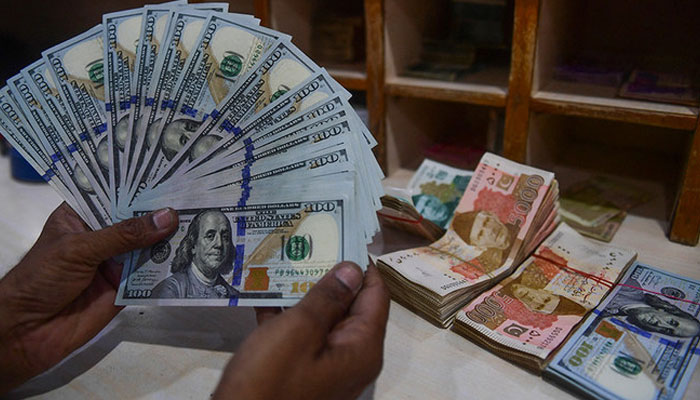Our real strength
Are billions of dollars coming to Pakistan? That’s the wrong question to ask. The right question is whether Pakistan is prepared and ready to receive and effectively utilize billions of dollars in foreign investment.
The global total Foreign Direct Investment (FDI) inflow hovers around $1.3 trillion per year. In the 2024 Kearney FDI Confidence Index, which measures business executives’ perceptions of FDI potential in various countries, the United States takes the top ranking for the 12th consecutive year followed by Canada, China, UK, Germany, France, Japan, UAE, Spain, Australia, Italy, Singapore, Switzerland, Saudi Arabia, Sweden, New Zealand, Portugal and India. Pakistan is not on the list.
In the last Ease of Doing Business Index, Pakistan was ranked 108 among 190 countries. According to the World Investment Report 2023, Pakistan received $1.34 billion in FDI in 2022, which is a 37 per cent decrease compared to the previous year. China remained the biggest investor. During the first six months of the current fiscal year, net FDI grew by 35 per cent compared to the same period last year.
In the Country Liquidity Index (CLI), a metric used to assess a country’s ability to meet its short-term foreign debt obligations, the foreign exchange reserves held by the SBP are a crucial indicator of liquidity. As of May 17, net reserves with the SBP stood at a mere $9.15 billion.
Yes, there is a strong correlation between political stability and FDI. Countries with greater political stability tend to attract more FDI due to reduced investment risk, policy predictability, and transparency. Pakistan, however, lacks both policy predictability and transparency.
Business executives’ perception is our weakness. Ease of Doing Business is our weakness. The Country Liquidity Index (CLI) is our weakness. Policy predictability is our weakness. So, what is our real strength? To be certain, FDI decisions are complex and can be influenced by a whole host of factors. For example, there is a shifting focus away from large mergers and acquisitions towards greenfield projects, particularly in sustainable sectors like renewable energy.
Our real strength lies in industry-specific driven FDI. Copper is the ‘oil of the future.’ It is an excellent conductor of electricity and heat, making it essential for energy-efficient technologies such as electric vehicles, solar panels, wind turbines, geothermal energy, cryogenics, robotics, hydrogen production, 5G, quantum computing, drone technology, biodegradable batteries, and energy transmission systems. Pakistan boasts the world’s fifth-largest copper reserves, with the Reko Diq mine being a particularly large copper and gold deposit, estimated to contain 12.3 million tons of copper.
Are billions of dollars coming to Pakistan? Our legal and regulatory framework for mining is unclear and subject to change. Billions won’t come until we have a well-defined legal framework outlining exploration, extraction, and profit-sharing. Yes, security threats have deterred investors but security threats are manageable. Yes, we have bureaucratic hurdles and infrastructure bottlenecks. Until these issues are addressed head-on, the promise of billions will remain just that – a promise.
The writer is a columnist based in Islamabad. He tweets/posts @saleemfarrukh and can be reached at: farrukh15@hotmail.com
-
 Emma Roberts Stars In 'A Body In The Woods'
Emma Roberts Stars In 'A Body In The Woods' -
 'Our Estrangements Can Kill Us': Meghan's Co-star Weighs In On Anthony Hopkins Interview
'Our Estrangements Can Kill Us': Meghan's Co-star Weighs In On Anthony Hopkins Interview -
 ‘Tone Deaf’ Andrew Called Out Over Arrogant Behaviour Amid Epstein Scandal
‘Tone Deaf’ Andrew Called Out Over Arrogant Behaviour Amid Epstein Scandal -
 Singing, Dancing & Outperforming: Watch China’s Robot Fair Ahead Of Spring Festival 2026
Singing, Dancing & Outperforming: Watch China’s Robot Fair Ahead Of Spring Festival 2026 -
 WhatsApp Under Fire: EU Steps Up Pressure On Meta Over Claims Of Blocking AI Rivals
WhatsApp Under Fire: EU Steps Up Pressure On Meta Over Claims Of Blocking AI Rivals -
 Steven Van Zandt Criticizes Bad Bunny's 2026 Super Bowl Performance
Steven Van Zandt Criticizes Bad Bunny's 2026 Super Bowl Performance -
 Katie Price Seen With New Hubby Lee Andrews Weeks After Tying The Knot
Katie Price Seen With New Hubby Lee Andrews Weeks After Tying The Knot -
 Biggest Order Yet Issued Against Andrew Mountbatten-Windsor: King Charles You Have To’
Biggest Order Yet Issued Against Andrew Mountbatten-Windsor: King Charles You Have To’ -
 ByteDance’s Seedance 2.0 Marks New Era Of Cinematic AI-generated Videos: Here’s How
ByteDance’s Seedance 2.0 Marks New Era Of Cinematic AI-generated Videos: Here’s How -
 Struggling With Obesity? Here's How To Manage It
Struggling With Obesity? Here's How To Manage It -
 How Epstein Scandals Are Impacting King Charles’ Healing As Stress Refuses To Relent: ‘Could Spell His End’
How Epstein Scandals Are Impacting King Charles’ Healing As Stress Refuses To Relent: ‘Could Spell His End’ -
 Why Prince William Releases Statement On Epstein Scandal Amid Most 'challenging' Diplomatic Trip?
Why Prince William Releases Statement On Epstein Scandal Amid Most 'challenging' Diplomatic Trip? -
 Ciara, Russell Wilson Become Matchmakers For Pals?
Ciara, Russell Wilson Become Matchmakers For Pals? -
 Historic Mental Health Facility Closes Its Doors
Historic Mental Health Facility Closes Its Doors -
 Top 5 Easy Hair Fall Remedies For The Winter
Top 5 Easy Hair Fall Remedies For The Winter -
 Japan Elections: Stock Surges Record High As PM Sanae Takaichi Secures Historic Victory
Japan Elections: Stock Surges Record High As PM Sanae Takaichi Secures Historic Victory




